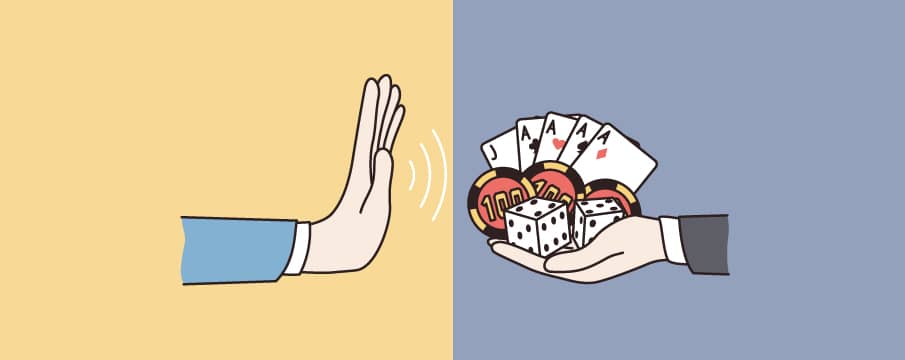- Home
- Best Texas Hold’em Strategy Tips That Work In 2025
Best Texas Hold’em Strategy Tips That Work In 2025

Rising to the top in a game of Texas Hold’em is the dream of many players who want to win the pot during the next World Series of Poker (WSOP) event in Las Vegas. Yet, not many can say they have. As one of the most popular versions of poker, Texas Hold’em offers a lot of depth, plenty of healthy competition, and not least, many resources to benefit from in trying to study what the best strategy to approach the game is.
A professional poker player will tell you that Texas Hold’em is a matter of constantly improving. As the game evolves, so do the poker strategies that you should use to advance your hands. The number of players is also increasing, and that means there is a lot of room for innovation and fresh challenges to explore.
Today, we take a look at what we consider to be the most viable Texas Hold’em strategy options for beginners as well as more advanced players who have a dream of making a WSOP event to the final table. Our strategy tips are based on conventional wisdom and what some of the top guns in poker have had to share. Let’s take a look.
Here are our top Texas Hold’em poker strategy tips that will help boost your place and give your playstyle a direction in the short as long as the long term.
#1 Play Your Hands Sparing, Play Them Well

Poker is a game where skill matters. You can take advantage of a weak opponent and also make sure that you play a strong hand well enough to create the most favorable conditions for yourself. This is where how you play your hands matters as it creates new opportunities to make the most out of each round.
As a rule of thumb, you want to play a strong poker hand and play it aggressively. This means that you will generally try to stay from a weak hand that cannot help you advance much. Sticking with strong hands and playing them aggressively is one of the best ways to improve your bottom line.
You need to focus on an actionable range of hands that can be leveraged to elicit a response from your opponent, whether that is baiting them into betting or simply forcing them to forfeit their current bets as they suspect that you hold a good hand.
Playing tight hands is all part of building a more sustainable playstyle where you can spend your money smartly and force some strong preflop action going in your favor. Earning a name for yourself as a player who usually plays strong openings will allow you to take advantage of players, build your bankroll, and avoid rushing into unexplored situations blindly.
#2 Play Your Strong Hands Quickly

Erring on the side of caution is what most poker players prefer. Yet, to truly make it work, you need to learn and identify what hands to play pre-flop and post-flop. The general consensus is that you need to learn when and how to play your strong hands.
You don’t want to end up in a situation where you lay down a hand that clearly offers flexibility and a strong play to only collect a small pot. Aggressive plays are not always the best poker strategy in Texas Hold’em, but knowing how to walk the line and make the most of each hand is a skill that you will cultivate over time.
Now, you need to know how to play your strong hands post-flop. Some players think that it’s a matter of constantly raising, but you can actually call or check. It’s really about a balance where you know how much you can elicit from the other player(s) and whether they are going to cave in or follow with raises of their own.
Strong hands provide some level of security, though, as they make it unlikely that you will be outdrawn. Weaker players may think you are bluffing and try to raise you on every occasion.
#3 Alternate Your Playstyles to Keep the Advantage

Whether you fast or slow-play, act on strong hands or bluff, it’s important to remain as far from detection as possible. Every professional poker player tries to keep their “poker face” on and remain inscrutable, whether they are holding a winning hand or trundling along with a poor one.
Mastering any Texas Hold’em strategy will also require you to learn how to keep a pace of play that allows you to not make mistakes, take advantage of strong openings and generally adjust your game in a way that allows you to stay in control.
However, it’s advisable that you alternate your playstyle, especially if you face the same poker players at live tournaments or even online. Texas Hold’em is a game of statistics, and sooner or later, a player may have you figured out. The best way to avoid this is to keep evolving your playstyle and throw in the occasional bluff.
#4 Confidence Is Good, But Check-Raising May Be Better

You obviously have a strong hand and are not afraid to play it. Yet, for opponents to feel comfortable buying more into the pot, you may want to slow down and try and analyze what your best option is. Texas Hold’em poker is a game where players are accustomed to certain patterns.
Checking is generally considered a passive, even defensive move, and it may encourage more self-assured players to bet. When playing a strong hand, you may want to let up on the aggression a bit and try and lure more players into the pot.
After all, your chances of being outdrawn with a strong hand are rather slim. There are a few ideal conditions that make check-raising a little more powerful on the face of it. First, you would benefit greatly from opponents who tend to play aggressively.
Whether it’s online poker or a live casino table, you want to be check-raising against players who are easily tempted to check you back or even raise you. The reason why you want to do that in Hold’em is quite simple. You are essentially trying to beef up the pot and cash in.
Is it a strategy that always works? That depends on how well you can read your opponents and whether they are skilled enough to recognize your bluffing.
#5 Understand Continuation Betting Works in Poker

A popular poker strategy in Texas Hold’em pivots around the idea of continuation betting. Essentially, if you raise before the flop, you are telling the rest of the table that you are pretty confident with your hand, and you would want to see how others respond.
Now, c-betting is a complex idea that can sway both ways. On the one hand, it’s very efficient in collecting the “dead money” in the pot because most players just respond to the big blind in the hopes of the preflop producing something better.
However, a player who goes in with a continuation bet is already signaling that he is willing to up the ante and possibly force players to fold. Yet, not everyone is going to fold for this because there could be a player or two who know their hands actually put them in a good position.
How good will depend on what they hold, but overall, c-betting is a strategy that comes with its ups and downs, and how you exploit it will be a mix of personal knowledge and the current luck of the draw. Luck, though, cannot force you to bet more on a less favorable hand, so Hold’em is still a game of pure skill.
#6 Play Games You Can Win

A fat lot of good would it do you to play versus Daniel Negreanu if you can just find cash games where players are as good as you are or better. You may be thinking – this is not much of a Texas Hold’em strategy, but most players realize that they need experience, and playing poker is all about growing as a player but also beating the fish.
If you want to swim with the sharks, you will have to eat the minnows as you will be able to accumulate money, test various strategies, and generally learn how to feel comfortable at any poker table. You generally want to spot a table that is considered good by identifying hesitance or lack of depth in the opponents’ play.
There are numerous tell-tale markers you can use to your benefit to be able to tell a game where the players are simply coming a little short of an ideal playstyle. That is where you come in. Looking for a table where your opponents are less experience is great.
Usually, this is easy to spot by finding a table where one or more of the players will be limping regularly. People will rise again either very frequently or not too often at all, and there will be multiple opponents playing all the time, contributing to a multiway pot.
#7 Remember to Fold If You Are Unsure

Texas Hold’em is a game of imperfect information. If you want to play successfully, though, you will have to learn how to fold in a way that allows you to protect your pot and not be bluffed into betting too much on a weak hand.
Any player can fold a weak hand, but a great player will know when he’s been outplayed even if he holds a strong opening pair. Remember, the dynamic of the game changes, and even WSOP players don’t always know what their opponents are playing.
However, they know that when unsure, the best way forward is to fold. Of course, a Poker Index Top 100 player will have far fewer situations in which they are “unsure.” However, the same logic applies to all levels of play.
If you cannot or do not understand the statistics too well, it may as well be time to fold your hand and wait for an opening that is more familiar. Don’t get hung up on a hand that you have been forced to fold because you weren’t sure. Use this as a growing opportunity because Texas Hold’em is really a game of stats, and the more you learn, the more you dare.
#8 Prey on Weaknesses

There are many ways players display weaknesses in Texas Hold’em. In online poker, you will see a lot of players limp in cash games or simply check. They won’t rise much and will generally seem to be playing hands that are not always justified. If you spot cash games with such opponents, it may be time to step in and press them.
“Exploiting a weakness,” it’s called, and it generally makes for a great strategy. Just like limping, weaknesses will usually be spotted by more experienced players who will, in turn, try to exploit those weaknesses to their advantage.
Most passive players aren’t immediately sure how to play against an opponent who seems to be more aggressive and knowledgeable. They may start checking or calling more often, which also works in your favor, as it grows the pot, or they could be misled to raise on weak hands, believing that just like them, you are not really sure what you are up to.
It’s interesting that in a poker game with strangers, most people assume about their opponents what they know to be true for themselves, giving a rather stilted view of the game as a whole. Now, these are generally the weaknesses you can spot both in online and land-based games.
However, when you play face-to-face with your opponents, you will see many players sweat it even when they were playing at a WSOP poker table. We have watched many tournaments where players will show signs of anxiety and nervousness even though they have made it very far into the tournament. That is what leaves them vulnerable.
#9 Be in the Right Mood

Does this really constitute a part of any Texas Hold’em strategy? It actually does! To boost your chances of successfully influencing your game for the better, you ought to be in a fitting mental condition. No player in the history of the game has ever been able to win a major title being sleep-deprived or “just not feeling like playing.”
A poker strategy requires you to be at your sharpest, and that usually means meeting specific mental conditions. You want to stay vigilant of the game and not let details elude you. You are playing poker when you “feel like it” will allow you to avoid poor decision-making, such as responding emotionally, not a bad beat instead of trying to collect your marbles and analyze what went wrong.
#10 Your Big Blind Matters

The big blind is actually in a great position on the table. Since you are already invested with a bet, you may as well try and use it to your advantage. You collect information from the entire table, and you may be able to protect your big blind if your cards allow you to and if you have spotted patterns about your opponents that bolster your confidence.
In any event, since you are already invested, you can call or raise a bet that is already trumping your bet. Since you have all the information, the person who was before you and raised isn’t really sure what to expect.
That is usually decided during the flop, but you want to make sure that you are protecting your investment from an opponent who seems to be either limping or not really sure how to act next.
#11 Ditch That Limp

Poker is a game of confidence and skill and one that follows some pre-determined rules that cannot be avoided. While you may feel some of the poker etiquette today doesn’t make much sense, it’s actually the best way to keep your strategic position in the game.
The player immediately after the big blind will usually raise to avoid what is known as “limping” in Texas Hold’em and most versions of poker, actually. If a player before you has “open-raised” after the big and small blind, you will want to call or raise the bet.
Alright, so the best poker players tell you to avoid limping but always have a game plan that allows you to raise in a sustainable way that makes sense in the broader context of the game. Yet, this doesn’t tell you why limping in Texas Hold’Em isn’t really that good of a strategy.
Well, here are a few scenarios to consider. If the entire table limps, then the blinds will have the opportunity to collect a lot of information for essentially what they have put on their obligatory bets. You want to raise so that the blinds become hesitant, and raise only if you have the hands to back it up.
Why limp when you can save yourself money and fold your cards instead of buying into a pot that you probably can’t win. If you limp, you will probably be facing other opponents who are also limping, meaning that you are eliminating the skill factor from the game and boiling down the game to the luck of the draw, which exists, but should never be a guiding principle.
If you are late to limp, that is, you limp in a late position after people have raised, you could still end up sacrificing too much on weak hands. So, what’s the logic here? Limping is not just about whether you raise – it’s about whether your hands allow you to act.
#12 Make Positions Work for You

Some players will jump from one table to the next online in a bid to secure the best position. That is usually the dealer or potentially the small blind. Which one makes the most sense for you depends, but it’s true that knowing when to sit at a table will give you a small advantage that, while not relied upon throughout the whole game, will still give you a bit of a head-start in the very least.
Positions will change rapidly, so they aren’t all there is to a game of poker, but getting in on the action at the right moment can give you that small advantage and give you a handful of rounds where you continue to collect information and act on it. You can choose to leave a table once you are “out of position,” or you can play, having collected enough information about the other players attending.
Of course, if you enter and put too much pressure, players are likely to just start leaving, and this will change the game as well. So, applying pressure is great, but you may want to do it gradually as well.
#13 Play Poker Tournaments in the Moment

Many players start a poker tournament with the idea of winning big. Yet, is this really important? The thing you should be asking yourself is how to make every hand count and to progress far enough to qualify for a reward. You don’t actually want to be aiming at the big prize down the road because this may distract you from the task at hand.
Most successful poker players will always tell you to play at the moment. Tournaments are a great way to test some additional strategies as well. Since most tournaments are played in Texas Hold’em, you can see how easy it is to put your Hold’em strategy to practice and see how far you can make it.
Remember, you are not necessarily trying to make it to the end. In fact, any good tournament strategy will tell you to aim at doubling or tripling your pot rather than playing for the grand prize, which will often put you against the best players in the tournament and could lead to you losing money. Going deep in a poker tournament definitely has its upsides, too.
#14 You Don’t Need to Play All Hands – Not at All

As explained earlier, playing fewer but stronger games is usually how you win the pot. This type of strategy will signal that you are well aware of what your odds of winning are, and you have assessed that you have a good chance of winning more than what the average hand has to offer. Players who focus on fewer hands to play will usually post better results.
A popular poker adage in Texas Hold’em goes that if you don’t have a good enough hand to call or raise, you are probably not going to make it far in the flop or any of the other turns, so why limp when you can just bid your time?
#15 Watch Professional Texas Hold’Em Poker

One of the ways to improve your game is to study how the best players in the world play and put yourself in their shoes. With so much poker happening, including the WPT and WSOP events, and televised content readily available, you can really get a lot of information.
It’s important, though, to consider yourself as an active spectator. Many people watch poker without critique and just enjoy the show, thrilled to see how people react to unknown conditions. However, if you are a poker player looking to learn, you will need to ask yourself why a certain game outcome happens and why.
Players who study the game are more likely to be successful and develop a strategy that allows them to win based on the current table conditions. There is an inherent value in watching how tournaments are played as you can see more situations, make notes and even see ready solutions to similar situations that you have experienced and struggled with yourself.
#16 Read Strategies on Reddit and Other Forums

A poker strategy is an accumulation of rules that hold true in specific circumstances. That is why reading up on your poker game can actually help you devise various stratagems that will work in individual situations and work well at that. Can Reddit really teach you how to play well? No, this will be a personal experience and one that you have to go through.
There are many helpful discussions, though, and poker tips are shared in forum threads that can then allow you to adjust something in your own play. You can ask for advice, share a success or even question the validity of a strategy. You can also use forum discussions as buffers to resources.
Many players are happy to share what they have found online and show you how you can take your Hold’em strategy and improve it where you spot weaknesses or just an opportunity to do things a bit better.
#17 Check out Good Texas Hold’em Strategy Books

Books are actually a good way to catch yourself up on everything you need to know about the game. Texas Hold’em is a game that evolves constantly. So, you probably shouldn’t focus so much on books that advertise “trends” in the game but rather analyze the psychology of Texas Hold’em. Maria Konnikova is an outstanding player who started as a researcher but decided to try and play as a professional.
She has won six figures playing professional poker as part of her book research, so if you are looking for great books to start with, Konnikova’s are always offering keen insight into the psyche of a poker player. She herself is a role model for what a player should be like, and as a hard-driven researcher, Konnikova is actually an impressive player.
She has a bias in poker down to bangs as a female player, and her confidence and unwavering commitment to studying the game have allowed her to beat many self-styled professionals who have found themselves beaten “by a girl.”
#18 Bet Sizing – An Important Hold’Em Skill

Bet sizing is a popular Hold’em strategy. You need to know how to size your bets if you want to be taken seriously and, far more importantly – to play consistently well in a game of poker. Generally speaking, you already know a thing or two about how to adjust your bets.
You know that if you are immediately after the big blind, you ought to open by raising so that you can potentially price others out of the event. That is true if you have the cards to back up this move, of course – otherwise, you can just fold your cards and wait for a more auspicious situation.
Usually, bet sizing will communicate strengths or potential weaknesses to your opponents and will allow you to also adjust yourself in relation to others. If you raise and see hesitation from players, this is your cue that your opponents are actually not quite sure how to respond to a bet.
Generally, though, you want to make sure that you follow conventional poker wisdom in the preflop stages. Once you see the flop and have a little more information to act on, you can change your continuation bet with something more offensive. Limping can also be used as a bluff. Bet sizing is a matter of feeling the table and determining what you can expect.
#19 Use All Poker Strategy Resources Available

The Internet is a vast place, and if you think that a single guide can provide you with all the poker strategies you need, you are wrong. There will be a myriad of things that you need answers to, and you will find yourself in a position where you are constantly looking to improve.
Just a collection of poker tips won’t do. It’s important to continue solving problems as they arise and focus on the things that you can actually change. As you play along, you will see that you run into specific issues. Over time, you will see that you are not too good at spotting a bluff or sizing your bet properly, leading to some topic-specific research.
You will naturally start simply by looking up a Texas Hold’em chart or cheat sheet that will tell you when and what pairs are good to play and what you must pass upon. You will probably be interested in finding a little more about how to open when to check-raise and more. As you play and spot those foibles in your overall play, you can look up the resource that will help you master your gameplay.
#20 It’s Down to You to Master Texas Hold’em

Last but not least, a great Texas Hold’em strategy boils down to one simple thing – how determined are you to make things work? Hold’em takes a lot of grit, skill, patience, and constant study of the institution of poker. You will need to play constantly and consistently to make sure that your poker skills improve.
Yet, the fact that you play a lot of cash games won’t in itself guarantee that you are a better player, nor will you memorize poker tips. It’s all part of a greater journey that will require you to take a closer look at not just what Hold’em strategy works for you but how you can leverage it successfully. You ought to learn the ins and out of poker and make sure that when you win the pot, it’s not a matter of luck but well-calculated risk and acting on hard, solid facts.
FAQ
Statistically, an off-suited 72 should be the worst hand you can draw. Do you fold it as soon as your turn comes? Most professionals will tell you to ditch it right away, and so would most players who have some experience in the game!
The best cards are usually the Aces and Kings, paired. However, if you are looking for the best hand, that is the Royal Flush. There are percentages and odds to consider, so refer to a Hold’em cheat sheet before you act.
There are four betting rounds, known as the pre-flop, post-flop, turn and river. The last round of betting is known as the showdown.
No. The general consensus is that playing Texas Hold’em for anything but real money teaches you bad habits. One of the most common poker tips is to try and enter cash games that have very small buy-ins, such as 0.01/0.02, often referred to as micro stakes.
While the amounts still look negligible, they will allow you to cultivate the right mindset when playing Hold’em. You can also turn a micro-stakes game into a tournament ticket, so never play games that do not simulate real money conditions.
Luke is a media graduate who is looking to build upon his experiences from his strong love of sports betting and casino games which started during his first year of college. His fresh mindset always brings new content ideas to the team and his editorial skills will continue to grow with the help of the upper management team at GamblingNews.com.















